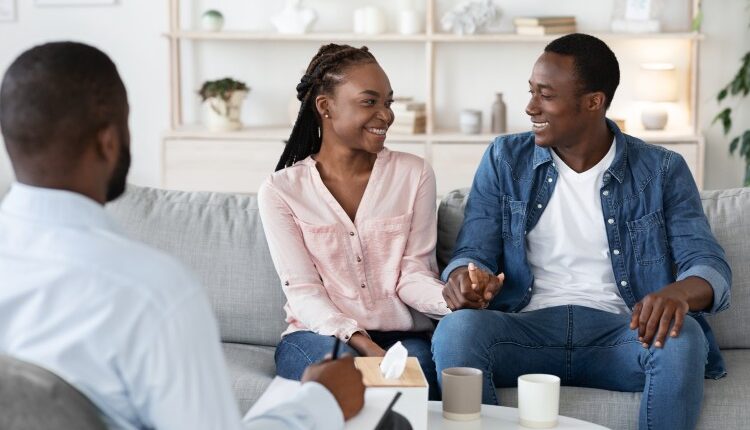5 Tiny-But-Critical Factors To Look For When Choosing A Marriage Counsellor
Couples therapy and marriage counselling can significantly help to improve the quality of relationships, but before you and your partner pick up the phone, there are a few things you need to know first.
The frequency with which inquiries show up in my practice for couples therapy is far greater than before. I receive calls daily from all kinds of couples with all sorts of struggles, both in and out of the bedroom.
I’m unsure if the rise is due to the recognition that the divorce trend hasn’t made things better for the next relationship, not to mention its adverse effects on family integrity. Or if there are simply convenient and more powerful, empirically based methods at the therapeutic disposal.
Does marriage counselling work?
Here are 5 tiny but critical factors to look for when choosing a marriage counsellor:
1. Not every ‘couples therapist’ is created equal
For one, there is an abundance of practitioners who set a claim on couples therapy, whether they have a doctorate (PhD, PsyD, DSW), a master’s-level degree (MHC, MFT, or CSW), or refer to themselves as relationship coaches.
In the therapy world, claiming couples therapy is considered less relevant than the notion the practitioner has the fundamentals — training, skills, and experience to provide a service for which they proclaim.
Websites promoting expertise in psychotherapy create scepticism and require further evaluation of their training and experience. Working with children is a speciality that does not often overlap with couples, with developmental disorders, autism, and cognitive testing being a subspecialty.
Peruse the “about” page. If it is insufficient, ask further questions defining their expertise.
Whether a referral from a friend, college, or Google, you can take it further and scrutinize online organizations/directories. Despite paid memberships and advertising, there is a qualification process for most to show inclusion, with some citing various levels of expertise. Invest in the process and your due diligence.
2. Not every model of couples therapy is created equal
Perhaps you have heard methods of couples therapy tossed around, such as Emotionally Focused Couples Therapy (EFT), the Gottman method, Imago Relationship Therapy, Object Relations, and more.
While many are effective, the bottom line is that EFT has more than 20 clinical studies showing its efficacy — it is the most empirically based on them all.
That said, I have faced many couples who have found great solace and healing with the other assorted models at contrasting times in their lives.
Although there are pieces of all that can help, it is most potent when there is a basic structure and model so that the experience is the antithesis of what Dr. Ellyn Bader, a noteworthy couples therapist herself, said about couple therapy to the therapist can “feel like piloting a helicopter into a hurricane.”
3. Good couples therapy is not cheap
Given the above, couples therapy today is not inexpensive. To enlist someone proficient requires education, training, and experience, none of which comes cheap.
Done correctly, it can help you grow your dyad and transform you as an individual. And if you are that far along your downward spiral, look at the alternative financially—it is less costly than divorce court.
4. Couples therapy can also transform the individual
One of the reasons I love Esther Perel, a psychotherapist and best-selling author, is because she takes a risk to say what only others, myself included, might ponder.
As such, I have heard her say one can do couples therapy with the individual in the room and individual therapy with the couple in the room. We know, for example, that with EFT for couples as an attachment-based protocol, the potential for individual growth and healing is monumental.
While the alternative can also ring true, I have seen greater healing within the couple’s frame.
5. It’s more than a plus if your couples therapist is also a sex therapist
When someone steps into therapy, they bring themselves both in and out of the bedroom. When engaging in an assessment of the couple, it should not go unnoticed.
My personal bias is that there should be no mental health professionals who don’t have at least some education in sexuality. The same goes for those who work with anything sexually related, like couples therapy or sex addiction, and it should be more extensive.
There are two reasons why. One, so you can speak about it. And, two, to know what to ask, look for, assess, and integrate if possible, or refer out.
Qualified practitioners maintain their discomfort either because of the topic or ignorance. Within the dyad and the frame of couples therapy, we look at sexual issues as part of the relational piece. It often is.
But there are times when conflict arises in a relationship due to physiological, physical, individual, and spiritual issues. While these have direct ramifications for the relational piece, they may need to be addressed independently.
For example, a man with erectile dysfunction or a woman with desire disorder, both of which most frequently maintain a relational base but might signal other etiologies as well.
Relationship problems are common in most healthy relationships. However, sometimes couples need a third and unbiased opinion. This is where couples therapists and marriage counsellors come in.
With the trend in marriage towards ‘our one and only’, betrayal at record producing rates (or at least our discovery methods expanded), and intimacy ever more on the back burner for some, people are stepping up to make meaning of their lives and relationships.
Marriage counselling can be a suitable remedy before opting for the more costly alternative, which is divorce.
Couples therapy can help, but only if you find the right marriage therapist for you.


